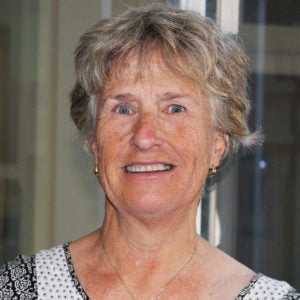Late in 2019, RANZCOG’s Constitution was amended to introduce a number of changes, one being the inclusion of two new directors to the Board. O&G Magazine speaks to Julie Hamblin and Dr Judith Gardiner.
When a Special Resolution was passed by Fellows at last year’s Annual General Meeting, RANZCOG President, Dr Vijay Roach, welcomed the news. That’s because its passage meant the College’s Constitution would be amended to introduce a number of changes, one being the inclusion of two new directors to the Board – a Diplomate Board Director (the Chair of the Diplomates Committee sitting on Council) and an Independent Board Director.
Those two new Directors are Dr Judith Gardiner (Diplomate Board Director) and Julie Hamblin (Independent Board Director).
‘This is a positive and progressive outcome for our College,’ Dr Roach said at the time. ‘These positions will ensure good governance and a mix of skills and expertise on the Board.’

Ms Julie Hamblin.
For Ms Hamblin, joining the Board continues a career spanning more than 25 years as a lawyer and policy consultant in health law, clinical risk, disability and international development. ‘I was drawn to a position in the health sector, and I am pleased to be able to build on the work I have done over many years on law and policy relating to obstetrics and sexual and reproductive health generally. I am also very interested in the international connections that RANZCOG is building,’ Ms Hamblin says.
A former partner of law firm HWL Ebsworth, Ms Hamblin has served on numerous government and other advisory bodies in the health sector, including the Australian Research Integrity Committee, the NSW Clinical Ethics Advisory Panel, the MBS Review Clinical Committees for Obstetrics and Gynaecology and the Attorney-General’s International Pro Bono Advisory Group.
She has a particular interest in global health, having worked with the United Nations Development Programme and other organisations on projects relating to public health and HIV/AIDS in more
than 20 countries in Asia, the Pacific, Africa and Eastern Europe.
In addition to her RANZCOG role, she chairs the Board of Autism Spectrum Australia and is Deputy Chair of charity Plan International Australia.
‘I have been involved with professional associations throughout my career and I think the governance of them is really important,’ Ms Hamblin says. ‘Having diversity of views and experience on any board is central to good governance. I hope I can bring a non-clinical perspective to the RANZCOG Board as well as a different voice. The beauty of a good board is that the total is greater than the sum of its parts. Having that mix of voices can be quite energising – you can get a real dynamic going that generates good decisions that are often better than the decisions any individual board member could make.’
Continuing to engage Fellows and trainees in the work of the College – given much of this work is pro bono and is time intensive – and ongoing challenges for health funding in Australia, including finding the right balance between public and private funding, are just two issues Ms Hamblin identifies as challenges for the O&G speciality.

Dr Judith Gardiner.
For Dr Gardiner, who has been a GP Obstetrician since 1980 working in regional, rural and remote locations, being on the Board presents an opportunity to represent Diplomates. ‘By and large the Board is engaged and attuned to the needs of GP obstetricians, so this appointment creates an opportunity to provide relevant information and guidance to the Board, increasing awareness of what we do.’ Dr Gardiner says.
Dr Gardiner is an advanced RANZCOG Diplomate and the current Chair of the RANZCOG Diplomates Committee and Vice Chair of the Conjoint Committee for the Diploma of Obstetrics & Gynaecology. She is also a DRANZCOG examiner and the Diplomate representative on the NSW State Committee.
Rural GP obstetricians must be involved in the development of maternity service policies, protocols and guidelines to ensure an appropriate level of care for women in their local area, and the College has a crucial role in advocating this to governments, according to Dr Gardiner. ‘Rural and remote women don’t want to go to the city,’ Dr Gardiner says, ‘it’s a major imposition and disturbance for their family life, particularly for Indigenous women.’
With a considerable shortage of GP obstetricians in more isolated locations throughout Australia, Dr Gardiner says there is a need to think of ways to guide Diplomates to establish skills to provide intrapartum care and give them the confidence to move to places where these skills are best utilised.
Both Dr Gardiner and Ms Hamblin say with the expansion of the Board to nine Directors, the College will continue to address its governance, fiduciary duties, education and training delivery, policy development and advocacy with vigour, bringing along its members and trainees.
‘A central role of the Board is to strengthen the engagement with members,’ Ms Hamblin says. ‘We want them to believe that what the College does is important, and we want members to be involved. The Board is actively seeking ways to encourage that involvement, which includes addressing structural issues and other disincentives that may exist currently. I believe that needs to be a priority for the Board.’
Dr Gardiner says: ‘Members have to feel they belong to the College to start with and Dr Roach has made great advances in reaching out to all members of the College. As a Diplomate, I have never felt a stronger connection with the College as I have more recently.’






Leave a Reply